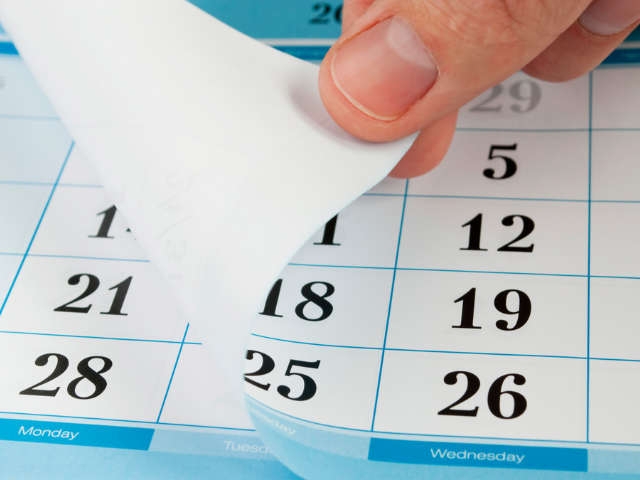The end of the term can be daunting for students. Deadlines are coming up fast, and the end of the term often means final exams. If you’ve never experienced exam season before, it can be scary trying to navigate the best ways to prepare. Keep reading to find out what to expect, and five helpful tips to get you exam ready!
What to Expect?
Exam schedules can be accessed on through your Carleton360 account – click the myExam Schedule button from the bottom. You’ll see your exams, along with dates, locations, durations and time period. In-person exams are often held in Athletics, but they can also be held in smaller classrooms, so make sure to double-check! Don’t forget to bring pencils, erasers, sharpeners, and a calculator, if needed. You will also be required to show your Carleton Campus Card for identification purposes. In-person exams permit you to bring personal belongings, such as coats, phones, bags and computers as long as they are stored underneath your seat or at the front of the classroom. However, the university recommends that you do not bring unauthorized or valuable items to your exam. Water is permitted in clear, unlabeled bottles. It is recommended you arrive approximately 15 minutes early to provide yourself with time to store your things and find your seat. For more information, visit Scheduling and Examination Services’ exam day webpage.
Online exams may have a set time period or a range of dates in which the test must be completed. For information on e-proctoring, visit the e-proctoring webpage.
If you encounter exam schedule conflicts or require an exam accommodation, contact the appropriate resources as soon as possible!
Tip #1: Set the Stage to Succeed
To study effectively, make sure you’re giving your body and mind the support it needs. Prioritize getting a good night’s sleep and fuel your body with energizing food and easy-to-grab snacks like apples and peanut butter, overnight oats, or smoothies.
Once you’re ready to go, find the right study environment! Determine if you work better alone or with a study buddy. Some people can find the company distracting, while others enjoy the opportunity to hold each other accountable. Also, find out if you enjoy working in busier or quieter spaces. If you love studying on campus, MacOdrum Library has quiet floors and regular floors for students to choose from. Next, ask yourself when you learn best. Is it early in the morning when you’re energized from your good night’s sleep? Maybe you prefer to study at night when you are more relaxed and unlikely to be distracted. By answering these simple questions, you are setting the stage to do your best.
Tip #2: Find a Study Method that Suits You
You’ve had a good sleep, you’ve eaten something, and you’ve found a nice place to settle in for your study time. Now what? Everyone learns differently, and there is no one right approach to studying effectively. So, let’s determine how you like to learn! Do you prefer to make flashcards and quiz yourself? Maybe you find it easier to retain information when you practice teaching it to another person. If you’re a visual learner, you might enjoy mind mapping.
Tip #3: Take Advantage of Resources
Feel like you need more help? Don’t stress. If you find yourself struggling, there are tons of resources on campus that can help! For instance, take advantage of your class’s office hours. Your professors and teaching assistants are there to help you succeed and can provide clarification or helpful tips on course content.
Carleton also offers learning and writing support through Learning Support Workshops and Peer Assisted Study Sessions. If you are interested in meeting other students and improving your study or writing skills, these sessions are a great opportunity for free help!
Tip #4: Be Mindful and Take Breaks
Let’s check in. How are you feeling? If you find yourself starting to get low on energy, take a break. You won’t learn effectively if you are not listening to your body and giving yourself time to refresh. Try the Pomodoro method. For every 25 minutes of studying, take a 5–10-minute break. After every three to four intervals, take a 15–30-minute break. Use this time to take a walk, eat a snack, or chat with a friend before diving back into studying.
If you find yourself becoming stressed or anxious, try the Wellness Service Navigator. This is a great tool to check in with yourself and access wellness resources depending on how you’re feeling and what you need at this time.
Tip #5: Pace Yourself
Don’t push yourself too much! To avoid burnout and extra stress, give yourself the time you need to succeed. Determine how much time you need to review the material and plan a routine accordingly. If you have multiple exams in one week, set a schedule for yourself, dedicating time from each day to preparing for a specific exam. This takes away the stress of having to decide what to work on each day and ensures you have adequate time to review, ask questions, and feel prepared.
Now that you’ve got the tools, all that is left to do is write your exam. Best of luck, Ravens!
Recent Quote the Raven Posts
Read the latest from our student Bloggers









 Ask Me
Ask Me